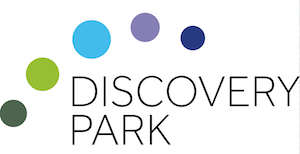Channels
Special Offers & Promotions
University laboratory at Discovery Park, Sandwich, Kent is playing key role in early cancer detection research
Research into the potential use of microscopic nanoparticles called exosomes in the early detection of cancer has put research taking place at Discovery Park firmly in the spotlight.
 Canterbury Christ Church University’s (CCCU) Life Science Industry Liaison Laboratory has linked up with the University of Liverpool, Roy Castle Lung Cancer Foundation and US science firm HTG Molecular Diagnostics for initial patient studies, ahead of a full clinical trial.
Canterbury Christ Church University’s (CCCU) Life Science Industry Liaison Laboratory has linked up with the University of Liverpool, Roy Castle Lung Cancer Foundation and US science firm HTG Molecular Diagnostics for initial patient studies, ahead of a full clinical trial.
The work, which is being done in collaboration with Austria based Anton Paar, is being recognized globally, including an invitation to CCCU to speak about the project at a leading genetics conference in Kerala, India.
Dr. Cornelia Wilson, Senior Lecturer and Academic Laboratory Manager, said: “With lung cancer, the disease is often not detected early enough. The work we are doing here at Discovery Park seeks to address that.
“Nanotechnology is a really big area of medicine with target nanoparticles manufactured so they have the ability to target disease.Anton Paar has created a way to see these small particles that would normally need an electron microscope, which have the potential to be used to diagnose the presence of cancer.
“They are working on a device called Litesizer which has a number of uses, including for people involved in the study of volcanoes.We’re looking at the technology from a biological perspective, exploring how cells communicate with each other.
“In many ways, it’s a biological email system. Essentially, the cancer cells release exosomes containing signals that promote cancer growth. They can travel long distances in the body to prepare the docking stations for metastasis. Cancer exosomes could also cause other cells to become cancerous and promote tumour growth.
“The detection of cancer-derived exosomes in the blood provides a unique opportunity for developing biomarkers enabling detection of the tumour before it is clinically visible and for monitoring its progress. We’ve identified four markers, or biomarkers as we call them – using these particles – providing a flag that cancer is present.
“In this last year we have done a screen of people with lung cancer; a small cohort of around 120 people. This work was done in collaboration with the University of Liverpool with funding from the Roy Castle Lung Cancer Foundation.
“The signs are encouraging with the four markers indicating cancer at any stage. That is a key thing with lung cancer, which needs to be caught early for treatment to be effective. The next stage is to validate these findings in a larger cohort.
“We have been successful in applying for further funding and together with the University of Liverpool and HTG Molecular Diagnostics located in Arizona, USA are working towards a clinical trial in as much as we’ll be using this as a diagnostic test.
“At the same time we’re working at Discovery Park on a second project, running in tandem, which is looking at the fundamental science, exploring the mechanisms of how cancer develops.
“Both are great projects for the university’s Life Science Industry Liaison Laboratory to be involved with and have brought the work we’re doing at Discovery Park international recognition that we hope will lead to further collaborations in the future.”
Canterbury Christ Church University’s Life Science Industry Liaison Laboratory opened in Spring 2016, providing the University and its students with first class facilities for science and research with access to Discovery Park’s diverse and dynamic range of pharmaceutical and bio-technology companies.
In addition to the nanoparticle research, the lab has linked with a number of other science companies both on and off site, including Venomtech – looking at the therapeutic potential of venoms and tackling antibiotic resistance; Levicept, developing treatments for chronic pain; and Genea Biomedx, exploring technologies related to optimising IVF treatment.
Cornelia added: “We have really benefited from being here at Discovery Park. Having science companies around us gives our students a better experience than if they were restricted to a teaching lab on campus.
“They still benefit from the academic side of things, but also from gaining an understanding of what industry wants and the skills required. This has benefits in terms of giving companies access to students equipped to help them and to our students for interactions that will be invaluable for their future careers in science.”
ABOUT DISCOVERY PARK
- Discovery Park is among Europe’s leading science and technology parks, based on the outskirts of Sandwich, Kent
- The park is an Innovation Cluster where companies and organisations are encouraged to work together and share knowledge
- Providing world class facilities, Discovery Park has attracted a host of international companies from the life science, pharmaceutical, biotechnology, science and technology sectors
- Facilities include research and development laboratories and specialist niche manufacturing facilities, commercial office space and warehouse solutions
- Discovery Park benefits from Enterprise Zone status
- Discovery Park is home to more than 150 companies employing 3,000 employees.
Media Partners


